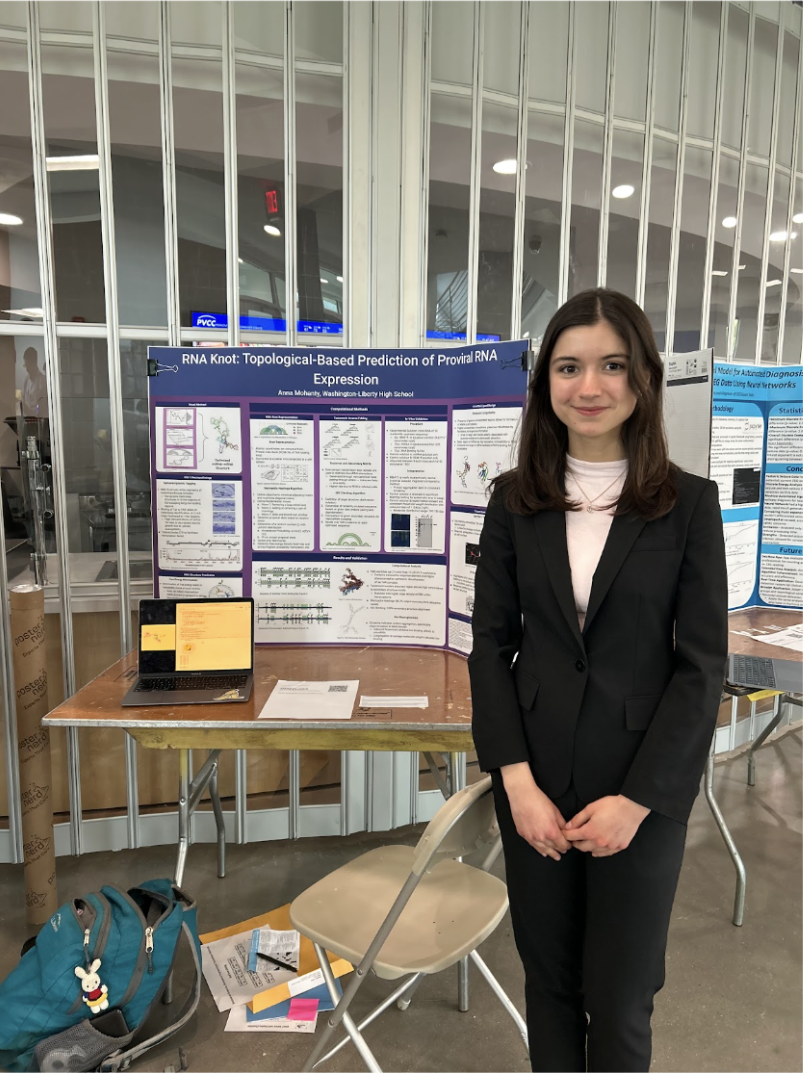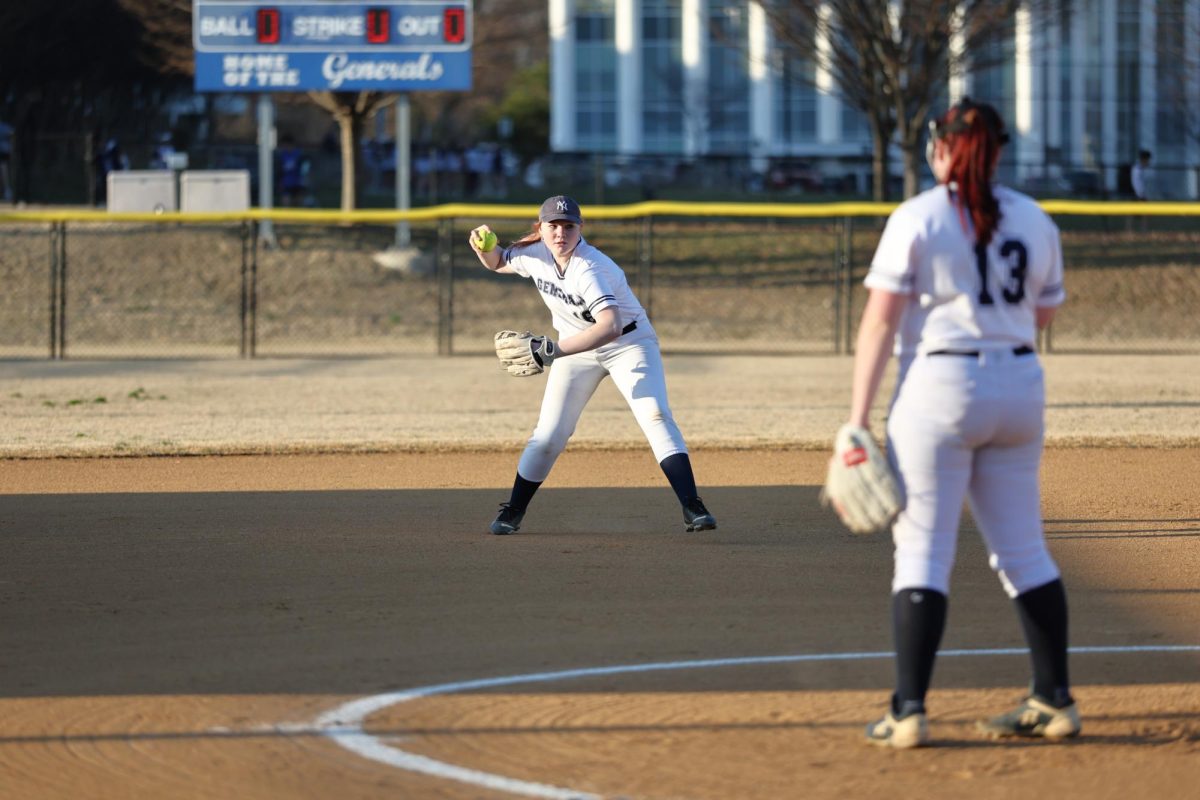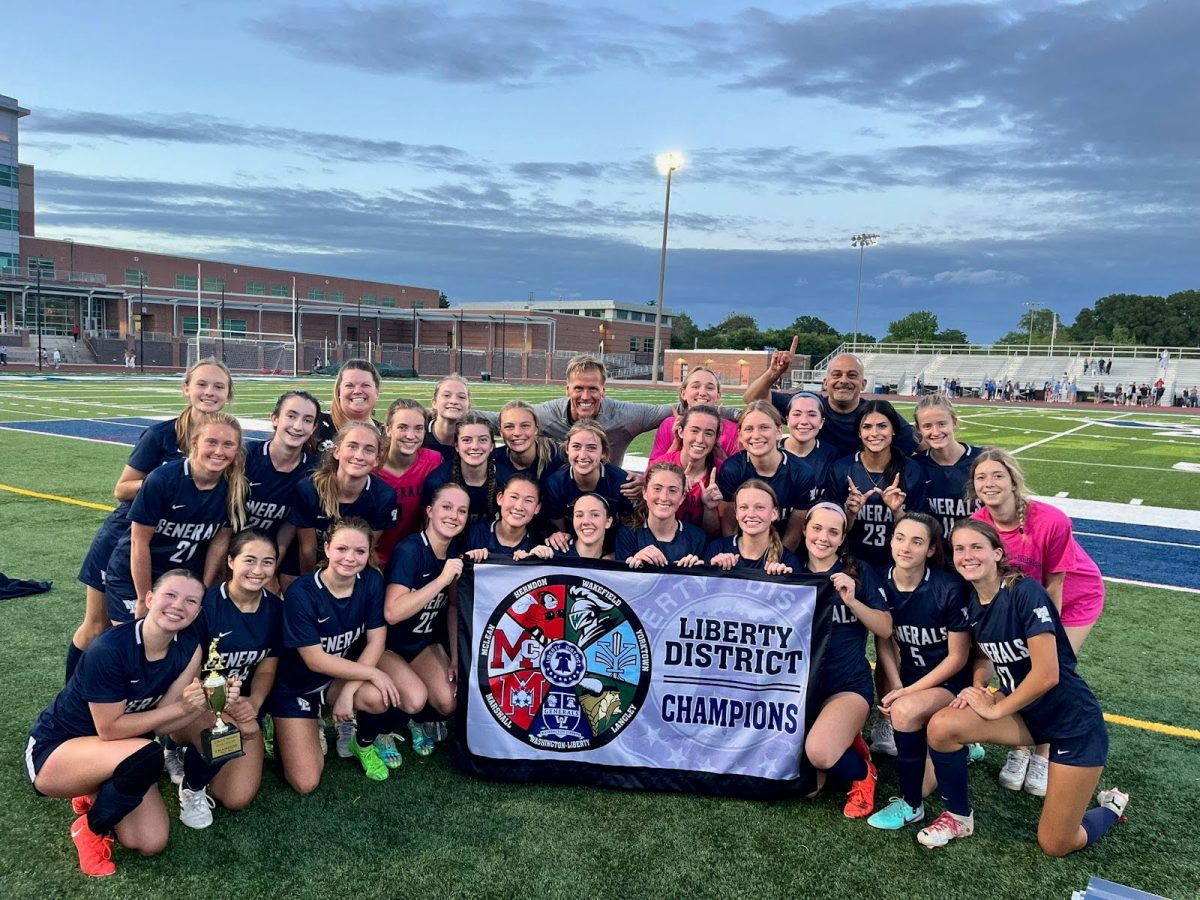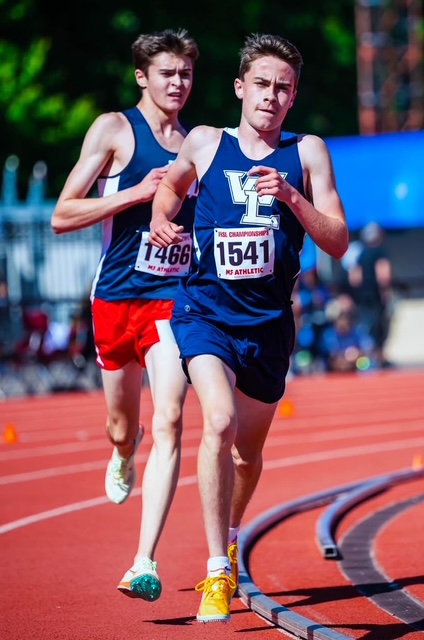For as long as she can remember, sophomore Natalie Almeyda has always been fascinated by horses. When she was little, she read countless books about horses and imagined owning one, too.
“She loved them when she was maybe a three-year-old,” Almeyda’s mother, Patricia Almeyda, said. “Everything we’d buy for her would need to come with a horse.”
The younger Almeyda’s first real-life experience with a horse occurred around when she was in kindergarten, when her class went to a farm on a field trip. The farm was offering free pony rides and Almeyda had fearlessly raced over to the pasture, insisting on getting her free ride.
“I was the first one — I ran right up to the pony and they put me right on her — and it was the best thing in the entire world,” Almeyda said. “I’m a really short person, so when I’m on a horse, I don’t feel like I’m short and I feel like people don’t look down on me in any way.”
Though it was a number of years between Almeyda’s first pony ride to when she began taking lessons, her passion for riding never faded. Almeyda started riding lessons in the seventh grade, and has since come a long way. In fact, Almeyda now has a horse of her own. She got her horse, Scamp, from a rescue ranch where she volunteers. The typical adoption process for a horse varies based on who and where you purchase the horse from. Almeyda says that she was very lucky in finding Scamp. When she first spotted Scamp in his pasture, she was certain that he was the horse for her.
“Luckily, the rescuer was really nice, and the main point she made was that she wasn’t looking for someone who would pay a lot of money for [Scamp]; she just wanted someone who would love him,” Almeyda said.
Along with owning Scamp, Almeyda is currently on an equestrian team and participates in competitions organized by the Interscholastic Equestrian Association (IEA). It is a non-profit organization and its main goals are to encourage students in middle through high school to join equestrian sports and provide riders with an array of competitions. The IEA also offers college scholarships, which riders have the potential to earn when they win awards at competitions. A unique factor about the IEA is that during competitions, riders are not allowed to compete with their own horses, so that riders who do not own horses can also compete. In competitions, riders show skill when they are able to handle the horse that they have been randomly assigned.
“Basically you [compete at] barns that are nearby and you’re on a totally different horse, like, it’s a horse from a different barn and you don’t know what they’re like,” Almeyda said. “[The judges] tell you about the horse, in case there’s something dangerous, but they expect you to properly handle the horse, while at the same time, keeping your cool.”
Almeyda competes under hunt seat, which is one of the styles supported by the IEA. Hunt seat involves judging the rider based on their posture and control of their horse. It is a form of English riding, which involves Almeyda using both hands to hold the reins and a smaller saddle than Western riding. Though she loves competing, Almeyda admits that competitions can be very daunting.
“As soon as you’re on the horse or you’re about to go on, you start feeling really nervous because for me, I’ve only been riding for about two or three years and I’m going against people who have been riding their whole lives or even five years,” Almeyda said.
She also finds that the judges can be intimidating. Sometimes, riders can hear snippets of the judges’ conversations when final decisions are being made. Almeyda says that the judges will discuss the competitors’ forms and adjustments that should have been made, though no one is sure which rider the judges are referencing. Even though it can be difficult to listen to the judges’ critiques, competitions have only made Almeyda stronger. To her, enjoying riding is more important than winning competitions. Almeyda’s mother sees the competitions as learning experiences for her daughter, and earning a place in the competition does not have to be the most important factor.
“I think I am most proud when she doesn’t earn [anything],” Almeyda’s mother said. “She’s not worried or sad about not earning [anything], and her attitude has made me really, really proud of her.”
In her future, the younger Almeyda plans to continue riding for as long as possible. She admires college equestrian teams such as Sweet Briar College and Bridgewater College and dreams of being on the Olympics team one day.
“Overall, I think that this sport is amazing and it brings out a different side of you,” Almeyda said. “I love everything about it.”














